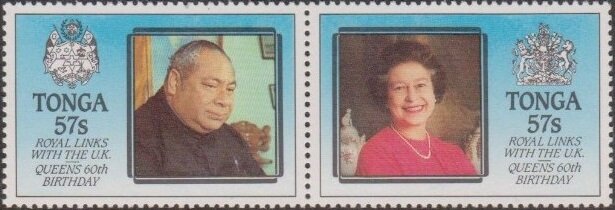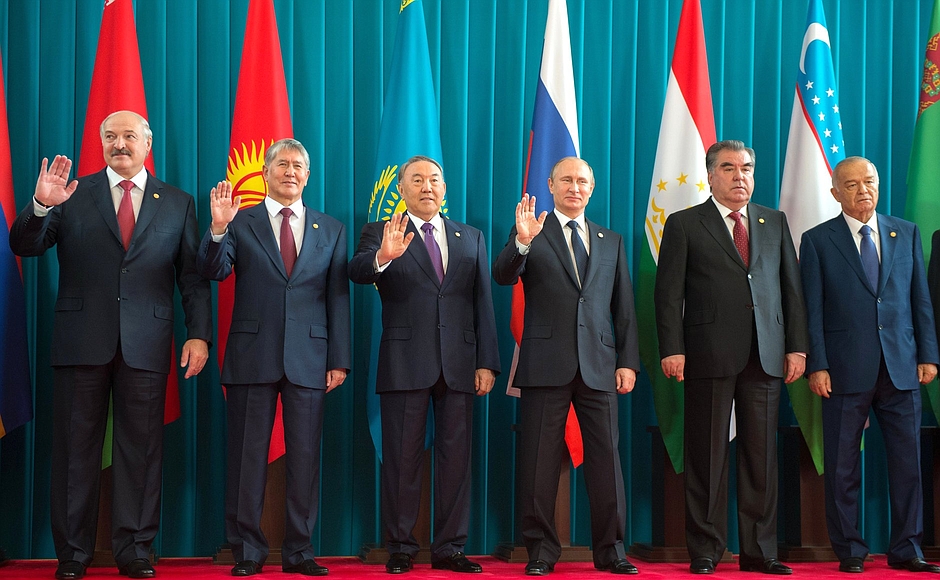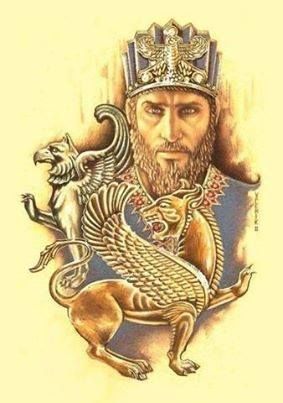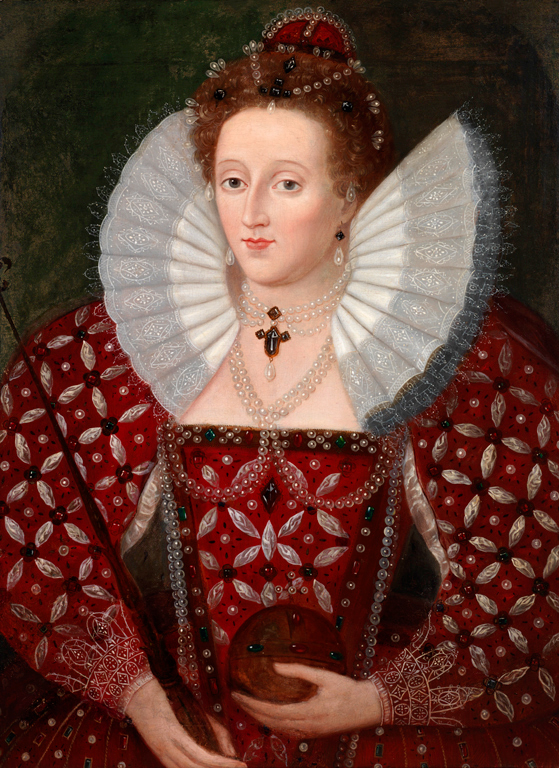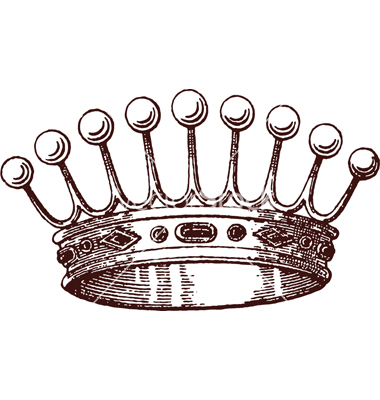Se-tenant: King Taufa'ahau Tupou IV and Queen Elizabeth II (Tonga 1986)
King Taufa'ahau Tupou IV and Queen Elizabeth II (Tonga 1986)
22 May (Tonga ) within release Royal link with UK & Queen's 60th Birthday goes into circulation Se-tenant King Taufa'ahau Tupou IV and Queen Elizabeth II face value 2*57 Tongan seniti
| Se-tenant King Taufa'ahau Tupou IV and Queen Elizabeth II in catalogues | |
|---|---|
| Michel: | Mi: TO 950-951 |
| Stamp Number: | Sn: TO 627a |
| Yvert et Tellier: | Yt: TO 633-634 |
| Stanley Gibbons: | Sg: TO 941a |
Se-tenant is square format.
Se-tenant pairAlso in the issue Royal link with UK & Queen's 60th Birthday:
- Stamp - King Taufa'ahau Tupou IV face value 57;
- Stamp - Queen Elizabeth II face value 57;
- Stamp - King Taufa'ahau Tupou IV & Queen Elizabeth II face value 2.50;
- Se-tenant - King Taufa'ahau Tupou IV and Queen Elizabeth II face value 2*57;
Se-tenant King Taufa'ahau Tupou IV and Queen Elizabeth II it reflects the thematic directions:
An anniversary is the date on which an event took place or an institution was founded in a previous year, and may also refer to the commemoration or celebration of that event. For example, the first event is the initial occurrence or, if planned, the inaugural of the event. One year later would be the first anniversary of that event. The word was first used for Catholic feasts to commemorate saints. Most countries celebrate national anniversaries, typically called national days. These could be the date of independence of the nation or the adoption of a new constitution or form of government. The important dates in a sitting monarch's reign may also be commemorated, an event often referred to as a "Jubilee".
Famous People refers to the fame and public attention accorded by the mass media to individuals or groups or, occasionally, animals, but is usually applied to the persons or groups of people (celebrity couples, families, etc.) themselves who receive such a status of fame and attention. Celebrity status is often associated with wealth (commonly referred to as fame and fortune), while fame often provides opportunities to make money.
A head of state (or chief of state) is the public persona that officially represents the national unity and legitimacy of a sovereign state. In some countries, the head of state is a ceremonial figurehead with limited or no executive power, while in others, the head of state is also the head of government. In countries with parliamentary governments, the head of state is typically a ceremonial figurehead that does not actually guide day-to-day government activities and may not be empowered to exercise any kind of secular political authority (e.g., Queen Elizabeth II as Head of the Commonwealth). In countries where the head of state is also the head of government, the president serves as both a public figurehead and the actual highest ranking political leader who oversees the executive branch (e.g., the President of the United States).
King is the title given to a male monarch in a variety of contexts. The female equivalent is queen regnant (while the title of queen on its own usually refers to the consort of a king). In the context of prehistory, antiquity and contemporary indigenous peoples, the title may refer to tribal kingship. Germanic kingship is cognate with Indo-European traditions of tribal rulership (c.f. Indic rājan, Gothic reiks, and Old Irish rí, etc.) In the context of classical antiquity, king may translate Latin rex or either Greek archon or basileus. In classical European feudalism, the title of king as the ruler of a kingdom is understood as the highest rank in the feudal order, potentially subject, at least nominally, only to an emperor (harking back to the client kings of the Roman Empire). In a modern context, the title may refer to the ruler of one of a number of modern monarchies (either absolute or constitutional). The title of king is used alongside other titles for monarchs, in the West prince, emperor, archduke, duke or grand duke, in the Middle East sultan or emir; etc. Kings, like other royalty, tend to wear purple because purple was an expensive color to wear in the past.
Queen - the title of reigning female monarch or the wife of the king in a number of countries
A Royalty is the immediate family of a king or queen regnant, and sometimes his or her extended family. The term imperial family appropriately describes the family of an emperor or empress, and the term papal family describes the family of a pope, while the terms baronial family, comital family, ducal family, grand ducal family, or princely family are more appropriate to describe the relatives of a reigning baron, count, duke, grand duke, or prince. However, in common parlance members of any family which reigns by hereditary right are often referred to as royalty or "royals." It is also customary in some circles to refer to the extended relations of a deposed monarch and his or her descendants as a royal family. A dynasty is sometimes referred to as "the House of ...". As of July 2013, there are 26 active sovereign monarchies in the world who rule or reign over 43 countries in all
